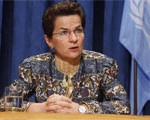 It’s that time of year again when the world’s attention shifts to the overwhelming need to limit and then radically reduce greenhouse gases caused by burning fossil fuels.
It’s that time of year again when the world’s attention shifts to the overwhelming need to limit and then radically reduce greenhouse gases caused by burning fossil fuels.
Organised by the United Nations Framework Convention on Climate Change (UNFCCC), the talks that started Monday in Cancun don’t appear to be laden down by the heady excitement that was palpable when last year’s annual conference began in Copenhagen.
As the world now knows, that optimism soon turned sour as the resulting so-called Copenhagen Accord was neither a legally-binding treaty to replace the Kyoto Protocol which lapses in 2012 nor a plan to reduce greenhouse gas emissions that are causing global warming.
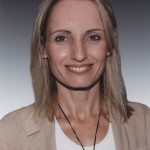 The Greek government is convinced that investing in renewable energies is the most efficient way to reshape the country’s beleaguered economy, Greek Energy Minister Tina Birbili told Wind Directions magazine recently.
The Greek government is convinced that investing in renewable energies is the most efficient way to reshape the country’s beleaguered economy, Greek Energy Minister Tina Birbili told Wind Directions magazine recently.
A few months ago, the government raised the 2020 renewables target to 20% – higher than the 18% goal set in the EU Renewable Energy Directive. Birbili explains that this is because “boosting green development” is seen as the best way for Greece to achieve its “energy, environmental and economic growth targets”.
The new legislative framework, passed in June this year will help, she says. It should speed up permitting processes, remove barriers to grid connections and kick off the development of offshore wind energy. The next step is to extend and reinforce the grid, and improve connections to other countries.
 Although still in its infancy, the idea of a future offshore North Sea supergrid might benefit by experiencing regulated financing through national transmission tariffs as well as having a single planner, code, and regulator.
Although still in its infancy, the idea of a future offshore North Sea supergrid might benefit by experiencing regulated financing through national transmission tariffs as well as having a single planner, code, and regulator.
Those are some of the preliminary answers that the Friends of the Supergrid (FOSG) have raised to deal with important issues that still need to be addressed, people attending the Grids 2010 conference in Berlin were told today.
Ana Aguado, the Chief Executive Officer of FOSG, said during a conference session called “Planning a North Sea Supergrid” that the creation of such an entity also needs to have an efficient supply chain and an adequate number of properly trained workers.
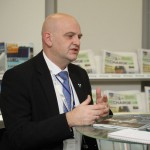 One of the biggest grids-related buzzes in the last couple of years has been the coming together of ten countries to promote an interconnected power network in the northern European seas. At the GRIDS 2010 event in Berlin I caught up with Jan Hensmans from Belgium’s Economy Ministry, who explained the ‘North Seas Countries Offshore Grid Initiative’ (NSCOGI) in more detail.
One of the biggest grids-related buzzes in the last couple of years has been the coming together of ten countries to promote an interconnected power network in the northern European seas. At the GRIDS 2010 event in Berlin I caught up with Jan Hensmans from Belgium’s Economy Ministry, who explained the ‘North Seas Countries Offshore Grid Initiative’ (NSCOGI) in more detail.
Why did Belgium decide to get involved in NSCOGI?
We saw the huge energy potential of the north seas and we had been involved in the ‘pentalateral energy forum’ with Germany, France, the Netherlands and Luxembourg, but five countries were not enough! So we set up a meeting with those and additional countries and the ministers signed a political statement on 7 December 2009. Then we organised a high level meeting in Ostend with EWEA – at which we agreed to sign a memorandum of understanding, which we will do on 3 December in Brussels.
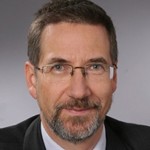 People attending the GRIDS 2010 conference may largely agree on the need for an extended European power grid, but there is far less consensus amongst the public and the issue must be addressed, said participants at a panel discussion this morning.
People attending the GRIDS 2010 conference may largely agree on the need for an extended European power grid, but there is far less consensus amongst the public and the issue must be addressed, said participants at a panel discussion this morning.
“Transmission system operators know exactly where the next grid lines are to go, but the permitting is a problem”, said Konstantin Staschus, Secretary General of the European Network of Transmission System Operators for Electricity (ENTSO-E).
“We need to explain to people that grid development is making life better for them, and not worse just because they see an electricity pylon on the horizon”, he said.
 It’s that time of year again when the world’s attention shifts to the overwhelming need to limit and then radically reduce greenhouse gases caused by burning fossil fuels.
It’s that time of year again when the world’s attention shifts to the overwhelming need to limit and then radically reduce greenhouse gases caused by burning fossil fuels.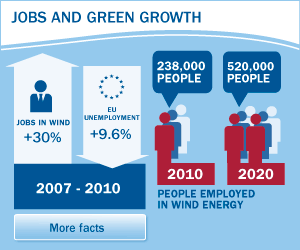






 Comments
Comments



